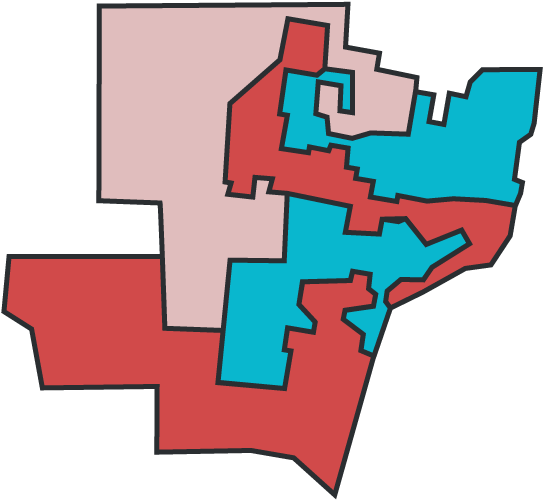In today’s lecture we discussed three salient issues that have come about through spatial analyses. First we have the ecological fallacy, which occurs when we attribute characteristics of an environment based on some aggregated data to an individual. Next, we went over the Modifiable Arial Unit Problem which arises when we represent data at different scales or zones and end up with different statistical results. The MAUP should always be considered when we represent data and a fair way to recognize it is by representing the data at different scales to show how the MAU effect could be affecting the data. The MAUP arises in U.S. politics with the issue of Gerrymandering and is in part why Republicans hold so many seats in the House of Representatives in states like North Carolina. Finally we have the Simpson’s paradox, which can be observed when we agglomerate local data and ultimately show a broader trend that conflicts with the trends of data in local scales.
We discussed these issues in the context of the decisions that go into deciding the extent and scale of study areas. Edge effects can potentially change conclusions in a study, because often times data collected in the field is interpolated in space using Kriging methods.
